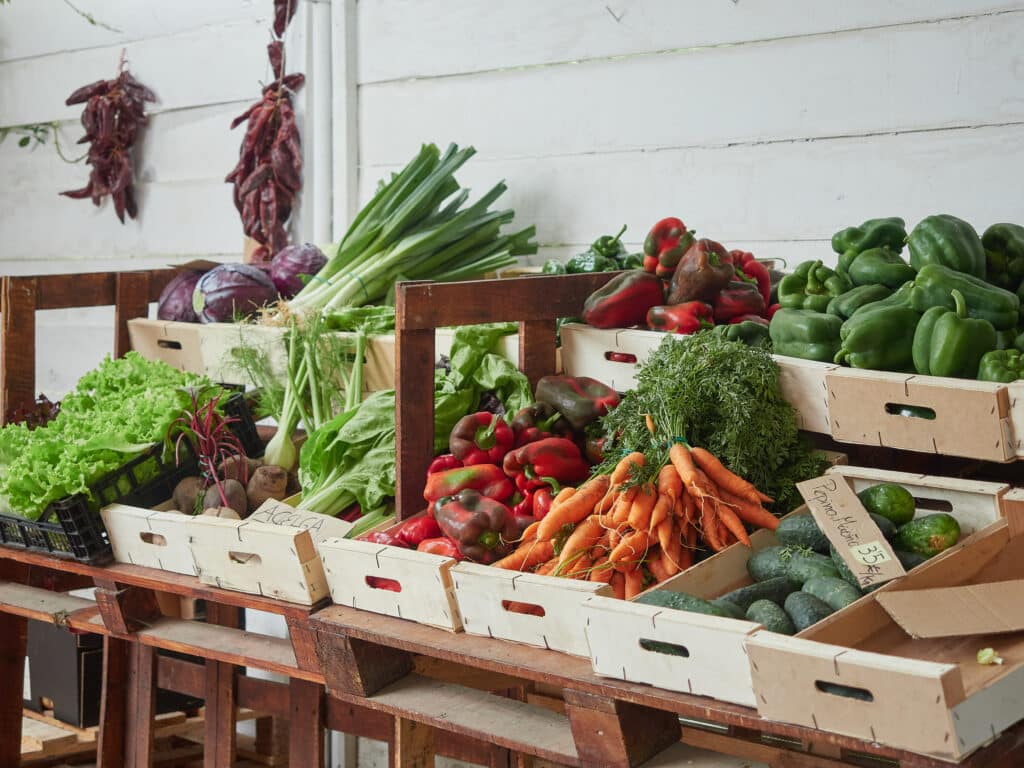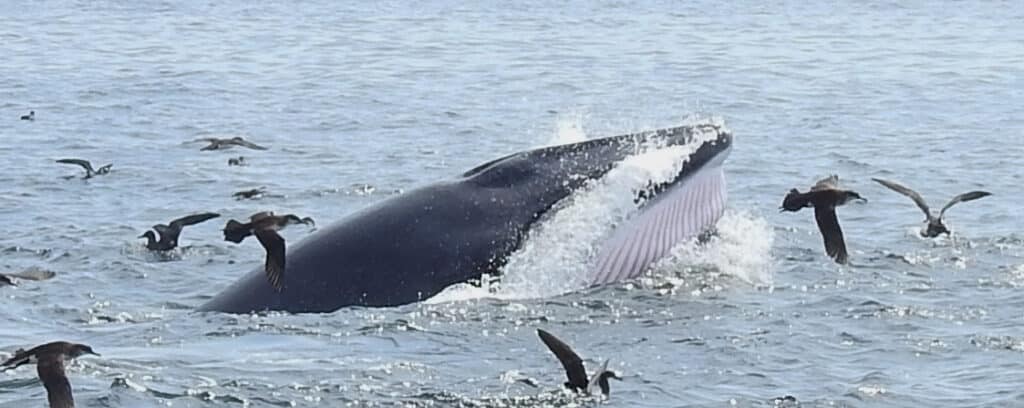
Growing up in France in the nineties, I always looked forward to grape harvest towards the end of the summer. Grapes were not cultivated in the northern region of France where I come from, but they were easily one of the cheapest fruits available in the shops that time of year, and certainly one of my favourites. Back then, soft fruits were eaten only at the end of the summer, and at the onset of winter we would get plenty of oranges and clementines to see us through to the spring.
Nowadays, access to seasonal fruits and vegetables is not so clear cut. With the rise of globalisation and mass distribution, we can find almost every fruit and vegetable for sale all year round. This enables us to eat strawberries in the depths of winter, but it has also blurred our understanding of where our food comes from, and how it is grown and harvested, creating a huge disconnect between us and what sustain us.
In 2020 alone, Ireland imported 75,000 tonnes of potatoes, 65,600 tonnes of apples, 38,500 tonnes of onions, 25,000 tonnes of tomatoes and cabbage, and 20,000 tonnes of carrots. Importing food from abroad relies on a global food system that uses vast amounts of energy and resources to grow, process, package, transport, refrigerate, and store food to hit our supermarket shelves all year round. In 2019, the UN’s Food and Agriculture Organisation published an analysis maintaining that the food supply chain was “on course to overtake farming and land use as the largest contributor to greenhouse gases”. Thirty-five per cent of the 16.5 billion tonnes of emissions coming from the global agri-food system annually are created by supply-chain processes: the post-harvest of food, its handling, packaging, storage, distribution, and waste disposal.
The term ‘food miles’ refers to the distance food has travelled to reach your plate. If I pick a tomato straight from the plant in my greenhouse or buy one from a local producer at my local farmers market, their food miles will be much, much lower than if it was grown and shipped from Morocco or Brazil. Fruits and vegetables that are shipped long distances have a heavy carbon footprint, and they are often picked before they fully ripen, losing nutrients by the time we consume them. Moreover, a large amount spoils during shipment, and many supermarkets will dump produce that does not meet cosmetic standards after a long transit across the globe.
It is often hard for consumers to identify and avoid foods that have travelled by air because they aren’t labelled as such. Highly perishable fruits and vegetables such as berries, cucumbers, asparagus, and green beans need to be eaten soon after harvest and require more packaging to keep them fresh, leaving air travel the only feasible option, and producing fifty times more carbon emissions than if they were shipped. When buying food, try to choose locally-produced, seasonal vegetables and fruits – a quick look at their provenance will tell you a lot more than the Irish-sounding names some dishonest brands use to trick consumers into believing their produce is grown in Ireland. And as a rule of thumb avoid foods that have a very short shelf-life and have travelled a long way, especially foods where there is a strong emphasis on ‘freshness’.
What is seasonal eating?
Seasonal eating is essentially buying, cooking, and eating produce at the time of year it is naturally available in your area. In Ireland, fresh asparagus and spinach are available in the spring, blueberries are picked in August, and parsnips are dug up in the winter. If you’ve eaten a strawberry in the summer, you’ll know that its flavour is far superior to one that was forced to grow in the winter. Growing them outside of their natural season is only possible because producers artificially recreate their seasonal weather needs by heating up greenhouses that require large amounts of fossil fuels to keep warm. How sustainable is it then, to have chunks of strawberries in your breakfast cereals every morning year-round?
Sturdy veggies like cabbage, cauliflower, and beetroot are in season almost all year round here, but most Irish fruit and berries are only available a few months in the summer. When it’s winter in Ireland, it’s summer on the Southern Hemisphere, and that’s how we can find apples from Argentina on our supermarket shelves when there are virtually none in Europe. And that translates to a lot of food miles!
Organic vs local
A question I’ve often asked myself is whether an organic courgette grown in Egypt and purchased in January is better or worse than one grown locally using conventional farming methods. Deciding whether to buy organic or locally produced food is a personal choice based on health concerns and on environmental and social responsibility.
Organic food is grown on farms committed to environmentally friendly agricultural methods: to label their produce as organic, farms must meet rigorous standards set out by organic certification bodies. But when organic food travels long distances to reach our supermarket shelves, it creates pollution that sometimes exceeds the positive environmental effect of organic farming. Many small Irish food producers use organic methods of food production but cannot call their produce ‘organic’ because they do not hold organic certification due to the costs associated with it and the (understandably) stringent demands from the certification bodies.
I would encourage everyone to attend their local farmers market to see what fruit and vegetable producers have on offer. Only by becoming familiar with what grows locally at any given time can we make informed decisions about what goes on our plates. And it’s okay to not completely follow the seasons to fulfil a more sustainable diet. After all, bananas don’t grow on trees in Ireland – and there’s no way I’ll be giving those up anytime soon!
@seasidesquirrel
www.seasidesquirrel.ie



